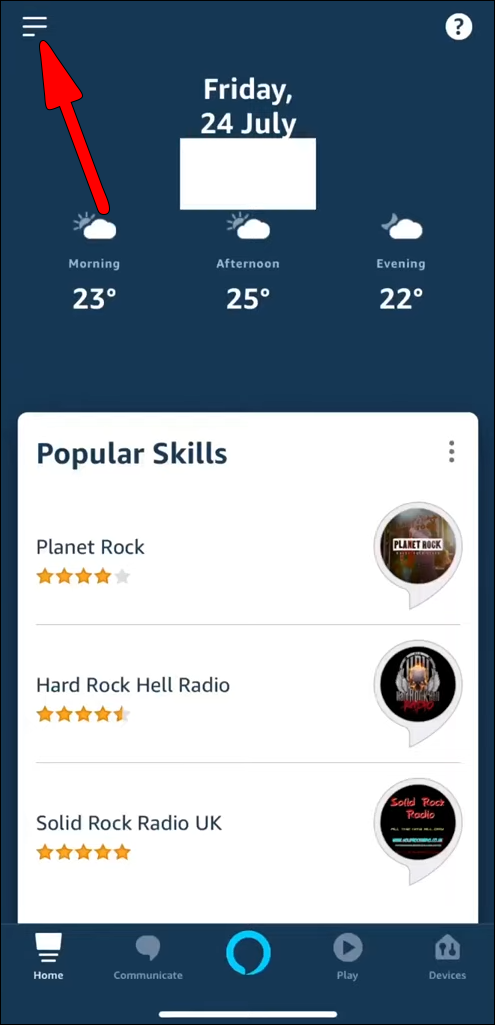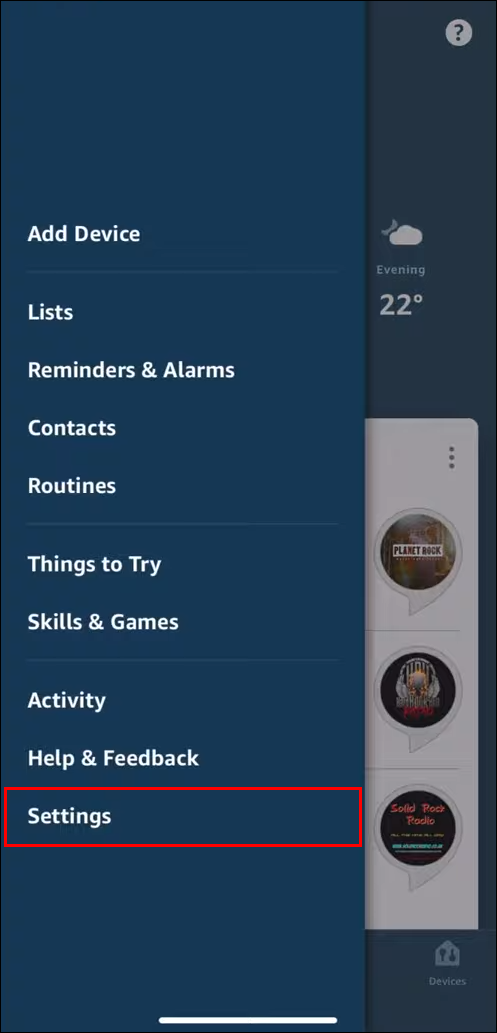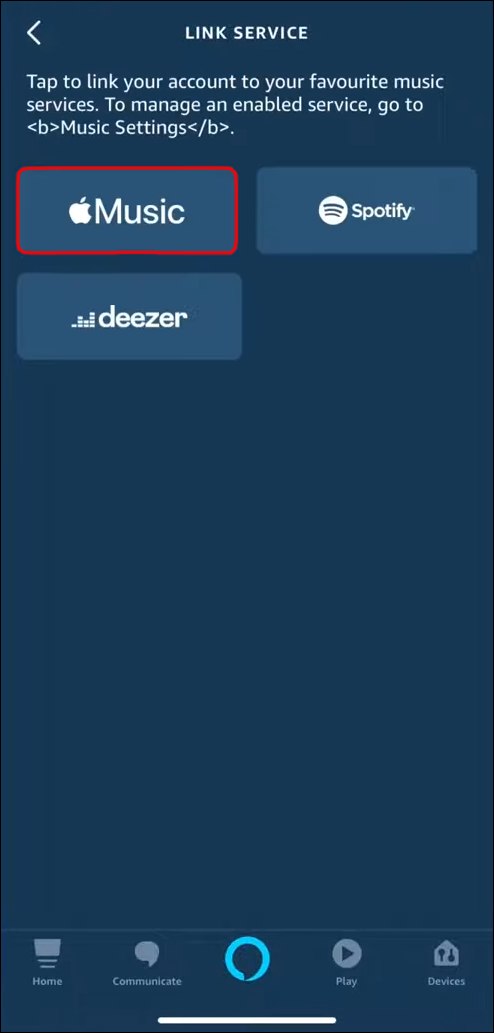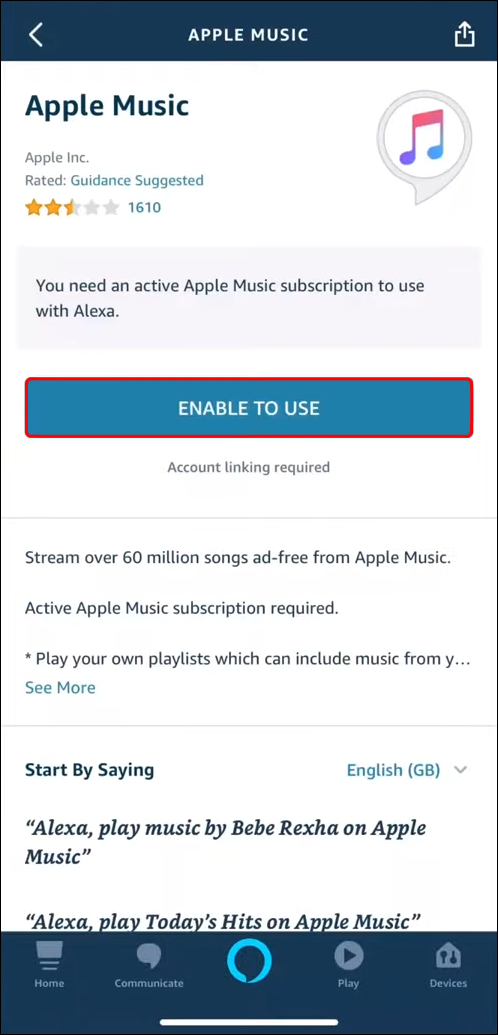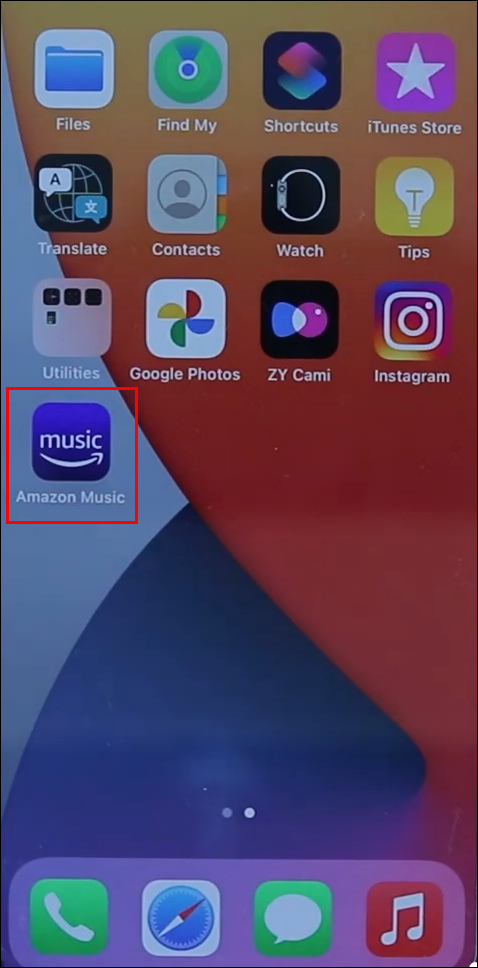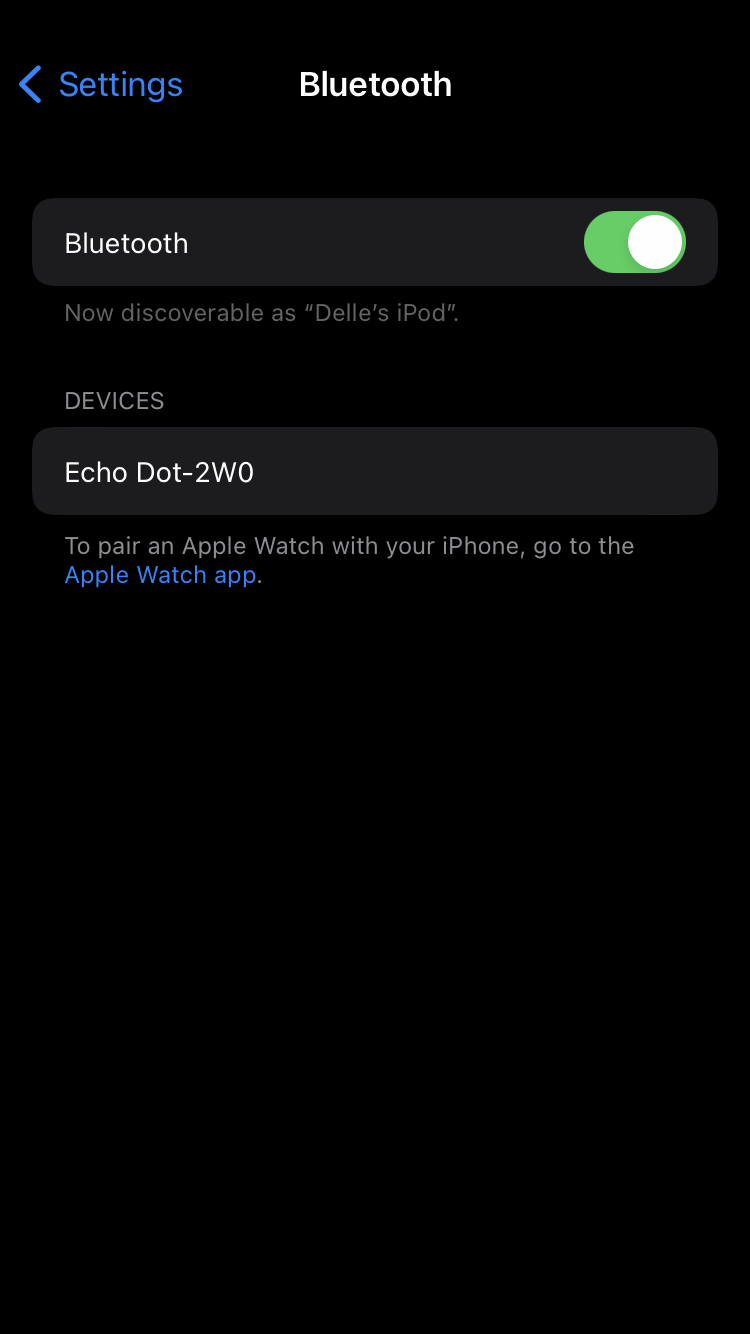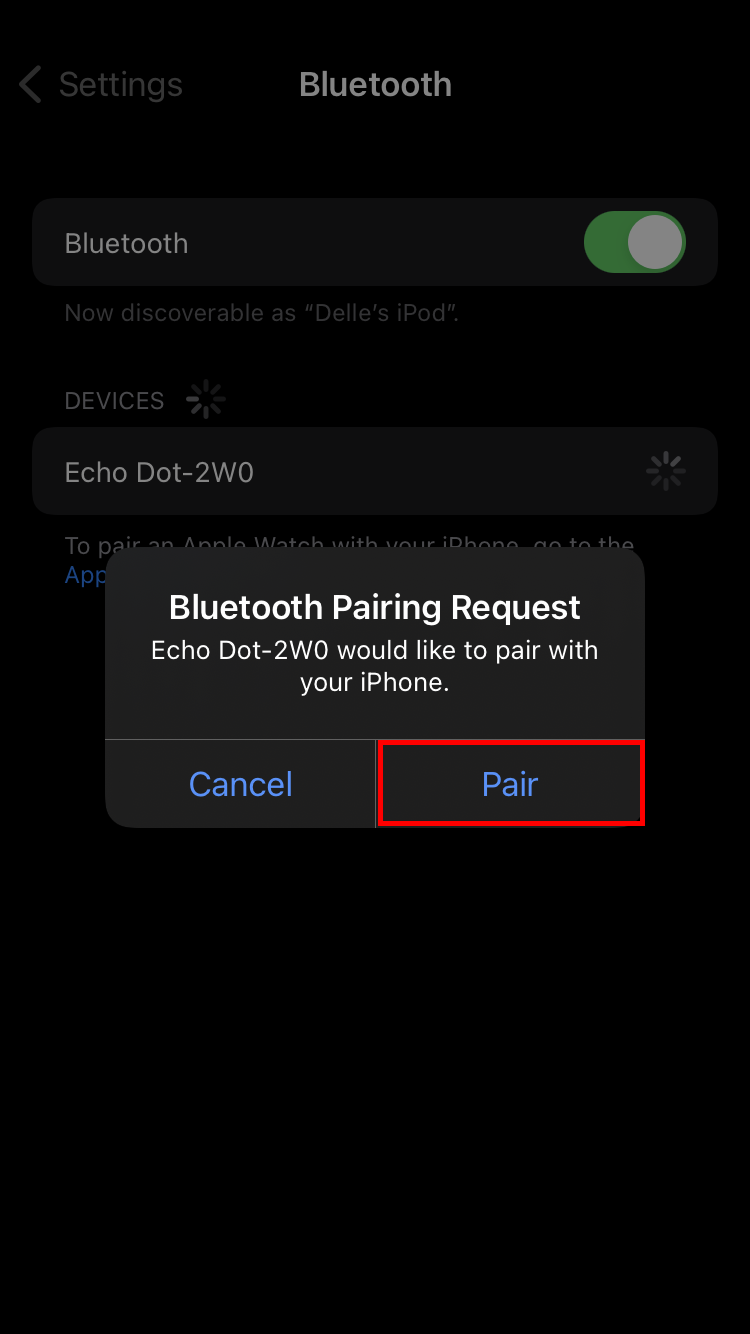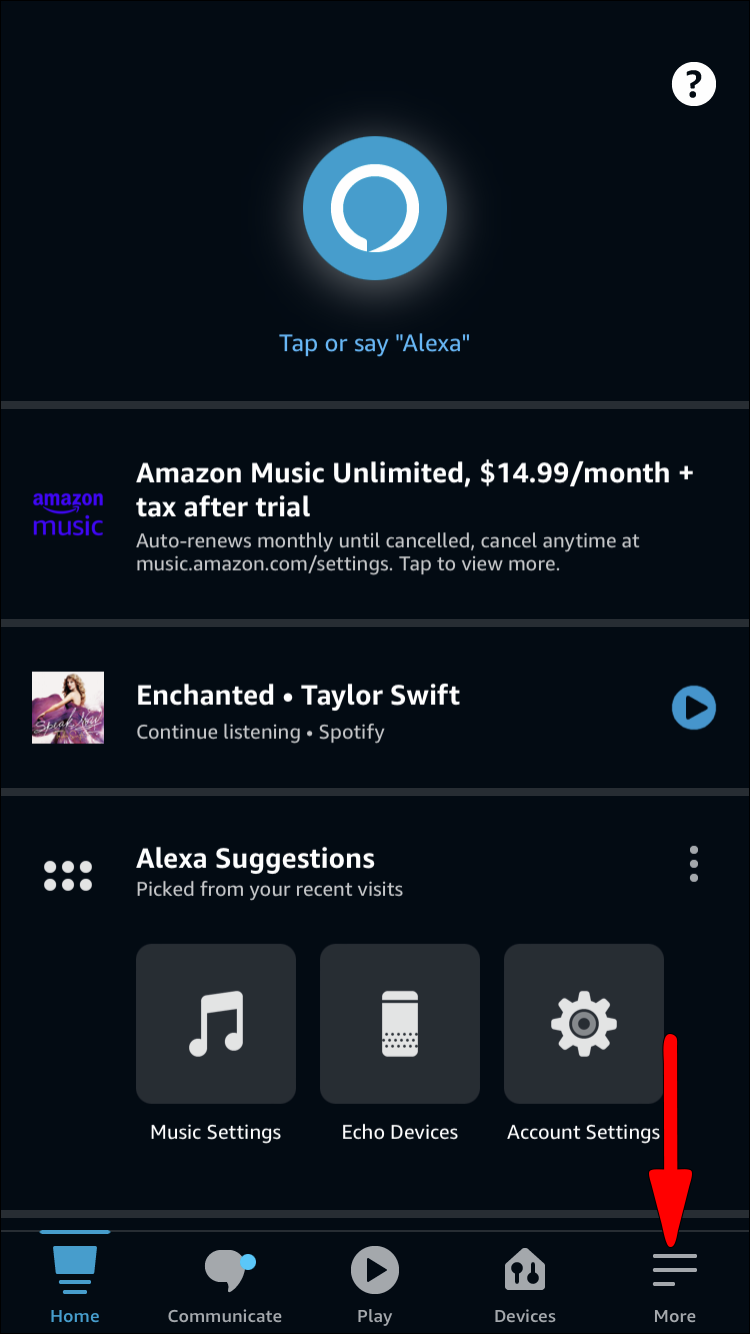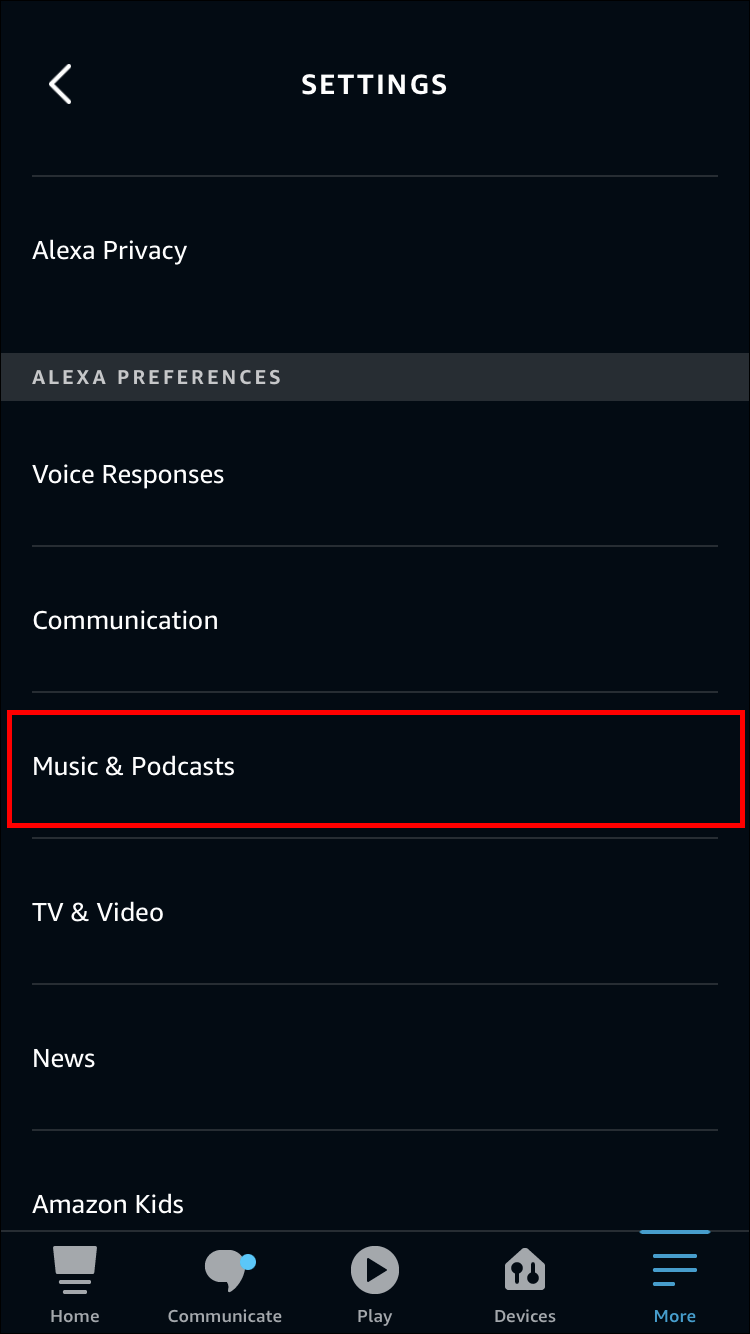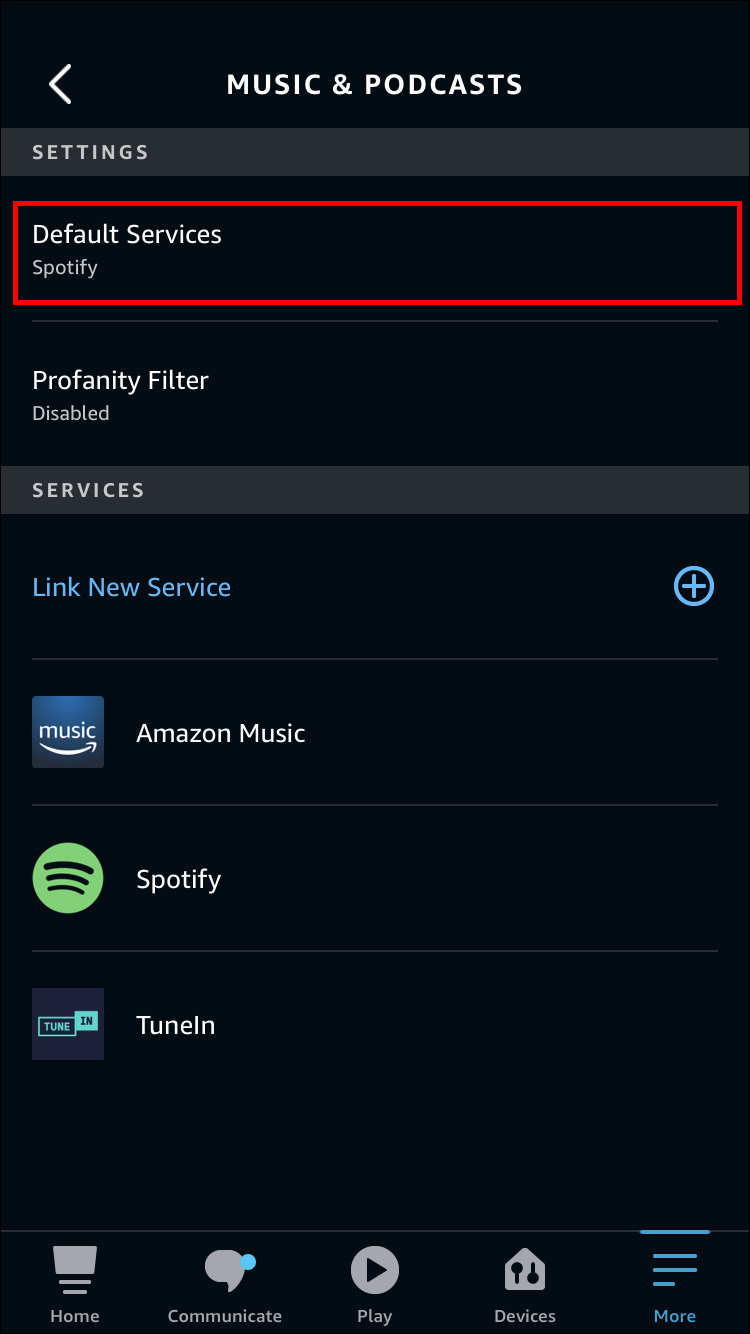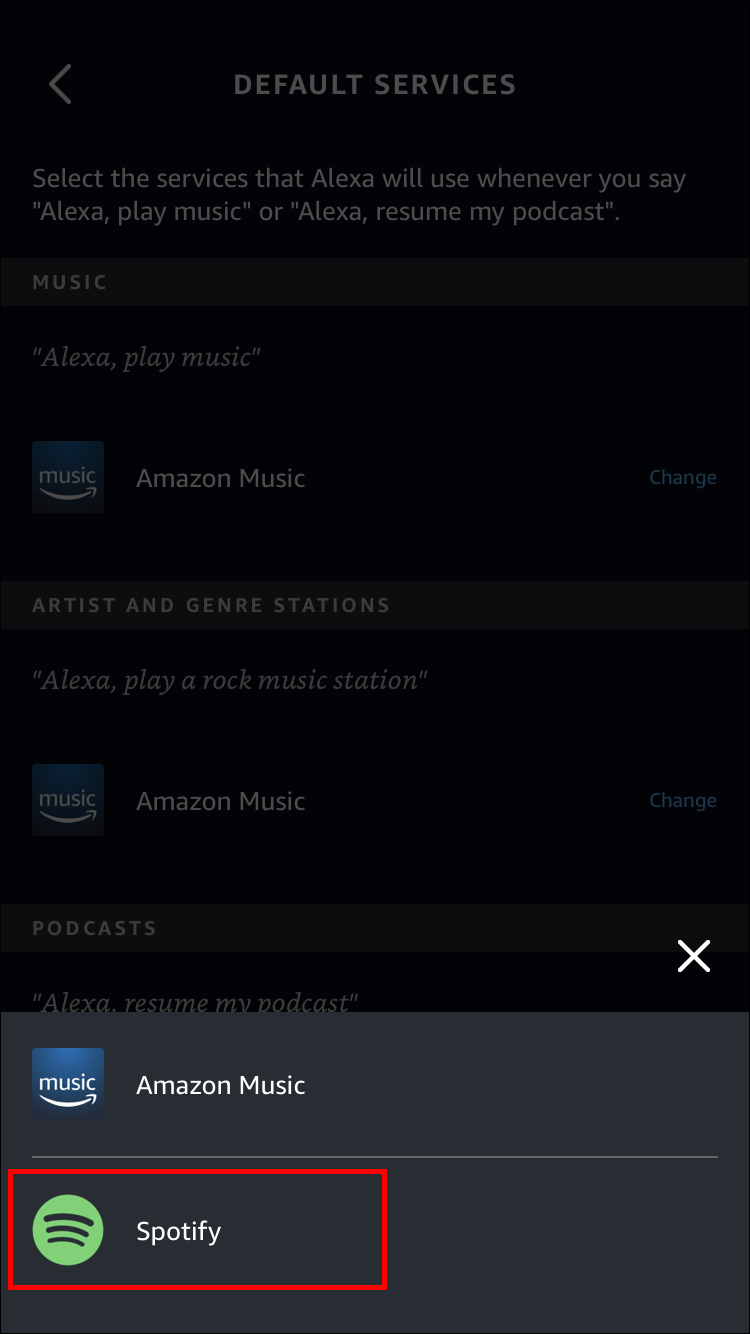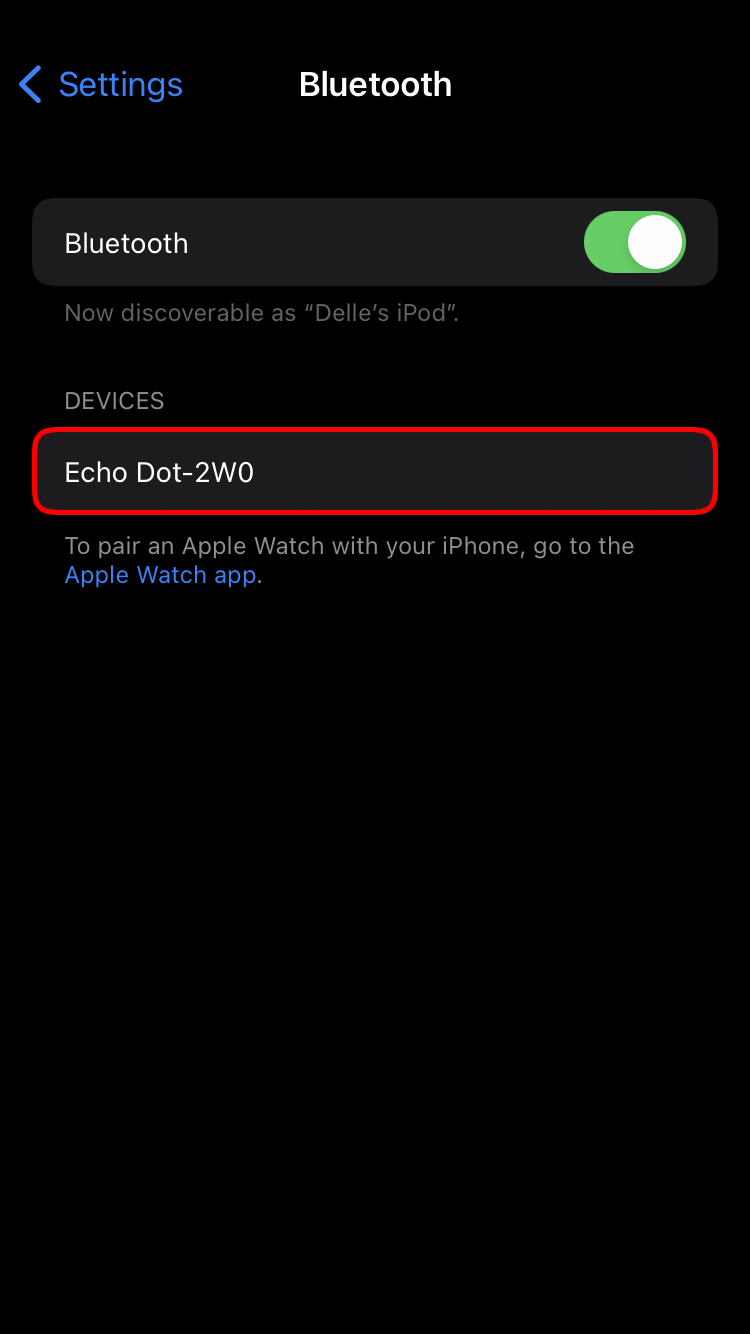If you have one of the Amazon Echo devices, you can rely on the dedicated virtual assistant, Alexa, to perform various tasks. You can control smart devices in your home, make phone calls, and even play music.
By default, Alexa-enabled devices play music from the Amazon Music platform, but that’s not the only available option.
If you want to play music from other streaming services through one of the Amazon Echo devices, you can do it using your phone. The playing methods will vary depending on the platform, but it’s all pretty straightforward.
How To Play Music From a Phone on Alexa
Before we get into details and describe the steps for each streaming app individually, let’s talk about what you’ll need in order to succeed in this process.
Amazon Echo devices are operated via the Amazon Alexa mobile app, allowing integrations with some music streaming platforms. Of course, Amazon Music is the default option, but you can also use Apple Music, Spotify, Deezer, and several others.
Music streaming services not integrated within the Alexa app will work with Alexa-supported devices, but only as Bluetooth speakers. You’ll still need to use the Alexa app to pair your phone with the Amazon Echo devices.
How to Play Apple Music From Phone on Alexa
With over 90 million songs, Apple Music has one of the most comprehensive online music catalogs. If you’re a subscriber and have an Alexa-supported device, you can easily get Alexa to play your favorite Apple Music playlists.
If you have one of the Amazon Echo devices, you already have the Alexa app on your phone, so to get started, here’s what you should do.
- Open the Alexa app on your smartphone.
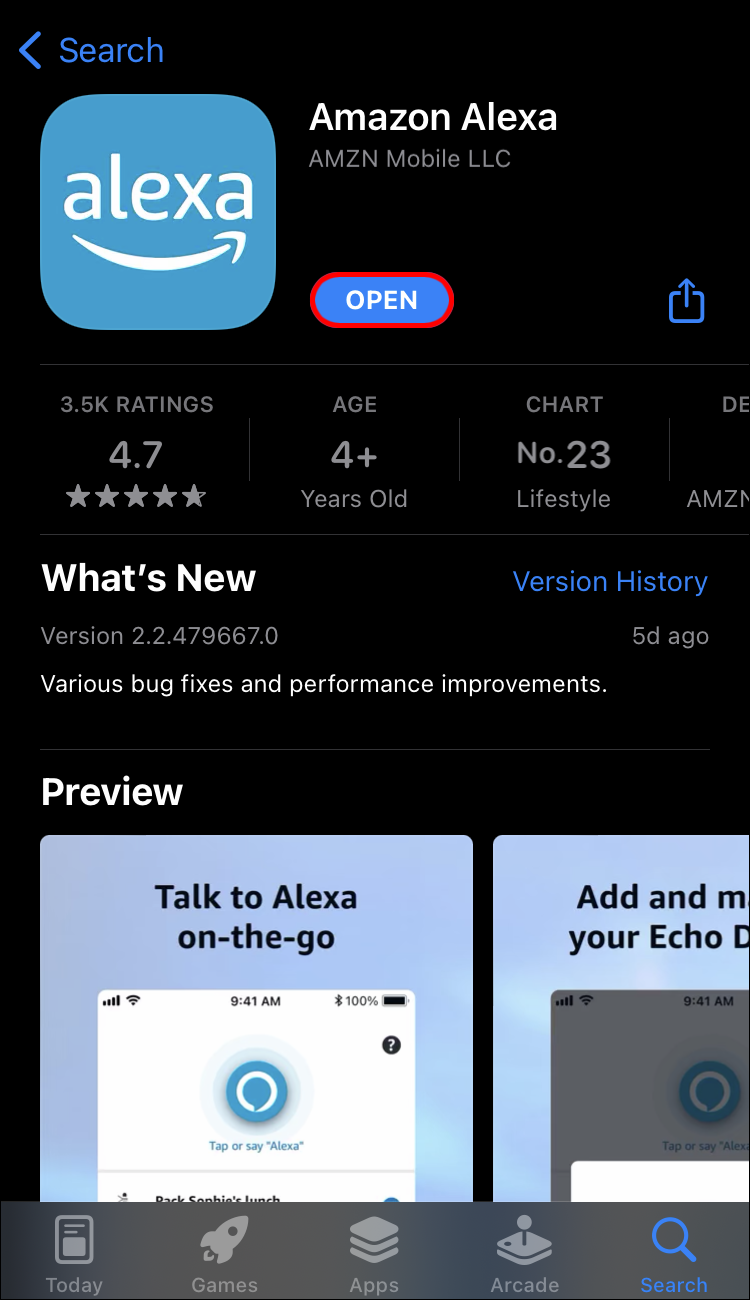
- Navigate to the menu in the top-left corner of the screen.

- Select “Settings” followed by “Music & Podcasts.”

- From the list, select “Apple Music.”

- Tap “Link account to Alexa.”

- Log in to your Apple Music account.

Now all you need to do is give Alexa the command to play specific songs from Apple Music.
How to Play Amazon Music From Phone to Alexa
There are two ways you can play Amazon music from your phone to an Alexa-enabled device. If you are an Amazon Prime subscriber, you already have access to Amazon Music for free.
If it’s under the same Amazon account, your Echo device will link Amazon Music automatically and set it up as your default music streaming service.
All you need to do is tell the voice assistant which music you want it to play. For example, “Alexa, play Taylor Swift.”
But there is another way to play Amazon Music to Alexa using your phone. You can cast a particular song directly to the Amazon Echo device. Most Amazon Echo devices have an integrated Alexa Cast wireless protocol compatible with the Amazon Music app.
To get a better idea of how it works, follow these steps.
- Download and launch the Amazon Music app to your Android phone or iPhone.

- Log into your account and tap on the “Menu” icon in the top-right corner of the screen.
- Select “Connect to a Device”
- Select your Alexa-enabled device.
- Play a song or select a playlist.
- Tap the “Cast” icon in the top-right corner.
The music will automatically start playing on your Alexa-enabled device. You can skip the songs or pause the music via the Amazon Music app.
How to Play Music From YouTube on Alexa
If you prefer to listen to music using YouTube or YouTube Music and want to connect it to an Alexa-enabled device, you only have one option. You can pair your phone or tablet with the Amazon Echo device via Bluetooth and use it as a speaker.
This option doesn’t give you the possibility to tell Alexa what music to play, but you can use your phone to operate Amazon Echo as a speaker.
Here are the steps you should follow.
- Go to Bluetooth settings and choose the “Pair device” option on your phone.

- Say, “Alexa, pair new device.”
- When your phone scans the Alexa-enabled device, confirm pairing.

These steps connect your Amazon Echo and smartphone. Keep in mind that precise navigation to the Bluetooth settings may differ slightly depending on your phone’s interface.
Once the devices are paired, you can go to the YouTube app on your mobile device and start playing music.
How to Play Music From Spotify on Alexa
Spotify has over 82 million tracks and around four million podcast titles, making it one of the most popular audio streaming services in the world. It’s no surprise that the Alexa app supports integration with Spotify.
If you have a Spotify account, you can communicate which songs or playlists to play from this music platform. But first, you need to set up Spotify within the Alexa app.
- Open the Alexa app on your mobile device.

- Go to the main menu in the bottom-right corner.

- Choose “Settings,” then “Music & Podcasts.”

- Select “Spotify” from the list.

- Tap “Link account to Alexa.”

- Enter your Spotify log-in information.

Once these steps are completed, you can simply say something like, “Alexa, play the Stranger Things soundtrack on Spotify.”
You can also make Spotify your default streaming platform, convenient for those who only subscribe to this particular music service.
To do so, follow these steps.
- Open the Alexa app and go to “Settings.”

- Select “Music & Podcasts” followed by “Choose default music services.”

- Choose Spotify from the list and tap “Done.”

Note: You still need to say “on Spotify” at the end of every request to Alexa.
How to Play Music From SoundCloud on Alexa
SoundCloud is an audio distribution platform and music streaming service that has been around since 2007. It’s particularly popular among aspiring music creators, but many people use it to listen to music every day.
Unfortunately, SoundCloud is not one of the services Alexa supports, but there is another way to listen to it on your Amazon Echo device. By connecting your mobile device and Alexa-enabled device, you can play SoundCloud within minutes.
Here’s what you should do.
- On your phone, turn on the Bluetooth.

- Allow your phone to scan for nearby devices.
- Select the Alexa-supported device when it appears in the list.

- Say, “Alexa, pair device” to trigger the pairing mode.

Now that your phone and Amazon Echo speaker are connected, you can go to your SoundCloud iOS or Android app and start playing music.
Note: If your laptop has Bluetooth connectivity, you can connect it to Amazon Echo and play SoundCloud from the web.
How to Play Music From iTunes on Alexa
Have you amassed a large collection of iTunes songs over the years? The good news is that they are now a part of your entire music library on Apple Music.
If you have a subscription to Apple Music, you can access your iTunes songs and play them on Amazon Echo. To get Alexa to play your iTunes music, you need to enable Apple Music on the Alexa app.
- Launch the Alexa app on your phone.

- From the bottom-right corner, select the main menu.

- Tap “Settings” followed by “Music & Podcasts.”

- Choose “Apple Music.”

- Tap “Link account to Alexa.“
- Enter your Apple ID. Keep in mind that it should be the same Apple ID for both iTunes and Apple Music.
Finally, think of a song from your iTunes collection and tell Alexa to play it on Amazon Echo.
Listening to Your Favorite Songs on Alexa
If you have an Amazon Echo device, you can listen to music in many ways. Integrating your music streaming platform of choice with the Alexa app offers the most convenience, as you can give voice commands.
If you don’t subscribe to Amazon Music, Apple Music, or Spotify, you will need to rely on Bluetooth to play the music you like. SoundCloud and YouTube account holders can use the Amazon Echo devices merely as speakers, which still comes in handy.
Either way, with Alexa, you can start playing some tunes in no time.
Which music streaming service will you use with an Alexa-enabled device? Let us know in the comments section below.
Disclaimer: Some pages on this site may include an affiliate link. This does not effect our editorial in any way.
